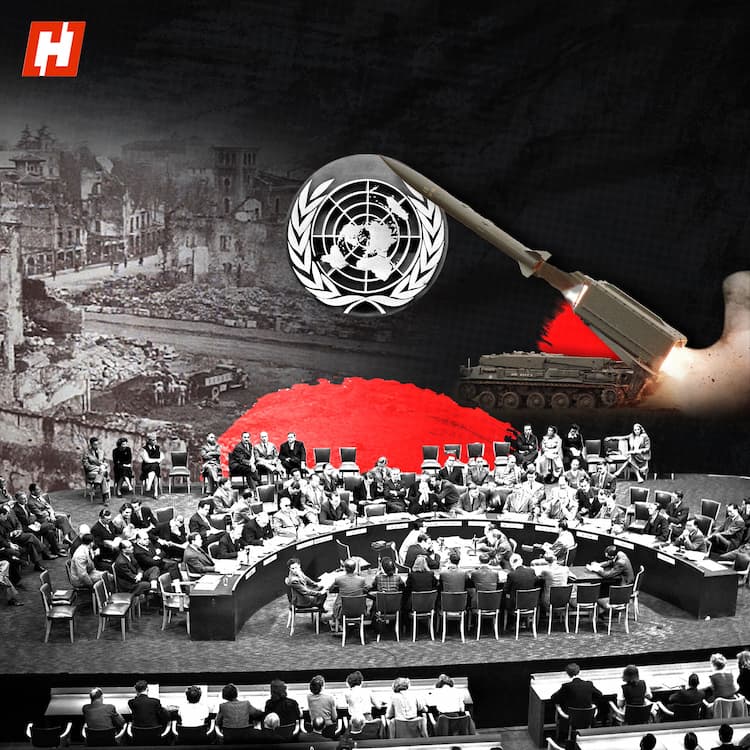As Israeli Prime Minister Benjamin Netanyahu pushes for the complete occupation of the Gaza Strip, Saudi Arabia's Crown Prince Mohammad Bin Salman is attempting to exert regional and global influence to end the war in Gaza.
Saudi Arabia’s renewed efforts to end the Gaza war comes as US-backed negotiations failed to secure any deal in the war-torn territory.
Riyadh now aims to gain international support for Hamas’ political rival, the Palestinian Authority, to govern Gaza.
To achieve this objective, Saudi Arabia—alongside other Gulf and European nations—is advocating for the disarmament of Hamas.
Notably, Saudi Arabia holds significant influence across Arab nations, and has strong global diplomatic leverage. Riyadh is now using this leverage to gain concessions from both Israel and Hamas.
News outlet Newsweek reported that behind the scenes, Bin Salman is exerting pressure on Hamas to abandon its weapons.
The Saud family is using its influence on Egypt and Qatar to persuade Hamas to disband.
It is also lobbying other Arab nations to politically isolate the militant group.
Last week, Qatar—for the first time—publicly called for the disarmament of Hamas. Experts suggest that Qatar is under immense pressure and its longstanding association with Hamas has become a liability.
Reports indicate that some key political leaders within Hamas have already agreed to the Saudi demand. It is now considered only a matter of time before the rest of the Hamas leadership follows suit, and transfers power to the Palestinian Authority.
The major hurdle in removing Hamas from Gaza is the group’s demand for a permanent ceasefire. Experts argue that Israel remains the main obstacle to that, as a ceasefire could potentially end Benjamin Netanyahu's political career.
The Israeli Prime Minister is now seeking cabinet approval to permanently occupy the Gaza Strip. He claims he's stepping up military pressure on Hamas to ensure all hostages are returned.
But, defence experts have warned that expanding ground operations to areas where Israelis are being held captive can endanger the hostages themselves.
Their lives are already at risk as hostages starve along with the rest of Gaza. That's why their families have been protesting against Netanyahu's war, and demanding a permanent ceasefire.
Voices within Israel are increasingly accusing Netanyahu of using the Gaza war to escape corruption charges and stay in power.
Saudi Arabia is now renewing its efforts to pressure Israel by offering normalization of ties with Tel Aviv. Bin Salman is seeking unified global support to end the occupation of Gaza and push forward the agenda of Palestinian statehood.
As Riyadh pushes to empower the Palestinian Authority to rule over a ‘Unified Palestine’, experts suggest that Bin Salman will offer economic and security assistance to the PA to enhance its governance capabilities.
Notably, Saudi Arabia has previously offered a series of peace initiatives aimed at ending the Israel-Palestine conflict.
In 1981, Saudi Arabia introduced an eight-point peace plan that sought Israeli withdrawal from territories occupied after the 1967 Six-Day War. That means establishment of a Palestinian state unifying Gaza, the West Bank, and East Jerusalem.
A second Saudi-led proposal was launched in 2002, known as the "Arab Peace Initiative," which built upon the 1981 framework. It offered Arab-Israeli normalisation in exchange for Israel's withdrawal from these territories and Palestinian statehood. Israel opposed the plan.
Experts argue that current developments have reopened the door for Saudi Arabia’s deeper engagement on the issue. However, Salman faces an uphill task in persuading Israel and securing international guarantees to uphold peace.
Notably, the 1990 Oslo Peace Accord, which established the Palestinian Authority, eventually led to renewed violence and failed to secure lasting peace.
The Palestinian Authority has faced criticism from both Israelis and Palestinians.
Israel accuses the PA of tolerating militant groups. Netanyahu has openly objected to replacing Hamas with what he refers to as ‘Fatah-stan’.
Meanwhile, a faction of Palestinians accuses the PA under President Mahmoud Abbas of working too closely with Israel.
Given the historic distrust between Palestinians and Israel, Saudi Arabia’s new peace plan seeks international guarantees on certain issues: a halt to Israeli settlement expansion, withdrawal of Israeli forces from Palestinian territories, establishment of a multinational peacekeeping force to manage the security vacuum in Gaza, and a reconstruction aid package, conditional upon sustained peace.
Question is, whether Bin Salman's new plan bring lasting peace where others have failed?





